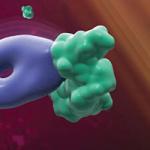
Research Topics
Our objective is to investigate the genomic changes that promote cellular senescence during vascular aging and chronic diseases. Utilizing advanced omics techniques, we map gene expression profiles of individual vascular cells and their spatial organization. Additionally, we explore the regulation of senescent cells by non-coding RNAs and the impact of local signaling molecules on senescent cells and the surrounding tissue. These studies will enable us to assess therapeutic strategies in translational models to alleviate the burden of chronic vascular diseases.
Biography
Dr. Herman received her bachelor's degree in biology from La Salle University in Philadelphia, Pennsylvania, followed by her master's degree in biology from Villanova University in Villanova, Pennsylvania. She then received her Ph.D. in Molecular and Cellular Biosciences from the Lewis Katz School of Medicine at Temple University in Philadelphia, Pennsylvania. Dr. Herman's Ph.D. research focused on the mechanisms by which RNA-binding proteins regulate inflammation in vascular diseases. She continued her interest in RNA biology in Dr. Gorospe's lab, as a postdoctoral fellow at the National Institute on Aging in Baltimore, Maryland. While there, Dr. Herman received the Postdoctoral Funding Award, the Women in Science Research Recognition Award, and the Fellow Award for Research Excellence during her postdoctoral fellowship. In 2021, Dr. Herman was selected as the NIA's first Independent Research Scholar, establishing her research program focused on translational approaches to combat cellular senescence in the vasculature. She then joined the Laboratory of Cardiovascular Science in 2024 as a Stadtman Tenure-Track Investigator, leading the Vascular Aging Biology Unit.
Selected Publications
- Herman AB, Tsitsipatis D, Anerillas C, Mazan-Mamczarz K, Carr AE, Gregg JM, Wang M, Zhang J, Michel M, Henry-Smith CA, Harris SC, Munk R, Martindale JL, Piao Y, Fan J, Mattison JA, De S, Abdelmohsen K, Maul RW, Tanaka T, Moore AZ, DeMouth ME, Sidoli S, Ferrucci L, Liu Y, de Cabo R, Lakatta EG, Gorospe M. DPP4 inhibition impairs senohemostasis to improve plaque stability in atherosclerotic mice. J Clin Invest. 2023;133(12).
- Mahoney SA, Dey AK, Basisty N, Herman AB. Identification and functional analysis of senescent cells in the cardiovascular system using omics approaches. Am J Physiol Heart Circ Physiol. 2023;325(5):H1039-H1058.
- Herman AB, Tsitsipatis D, Gorospe M. Integrated lncRNA function upon genomic and epigenomic regulation. Mol Cell. 2022;82(12):2252-2266.
- Herman AB, Anerillas C, Harris SC, Munk R, Martindale JL, Yang X, Mazan-Mamczarz K, Zhang Y, Heckenbach IJ, Scheibye-Knudsen M, De S, Sen P, Abdelmohsen K, Gorospe M. Reduction of lamin B receptor levels by miR-340-5p disrupts chromatin, promotes cell senescence and enhances senolysis. Nucleic Acids Res. 2021;49(13):7389-7405.
Related Scientific Focus Areas


Molecular Biology and Biochemistry
View additional Principal Investigators in Molecular Biology and Biochemistry



This page was last updated on Monday, November 24, 2025